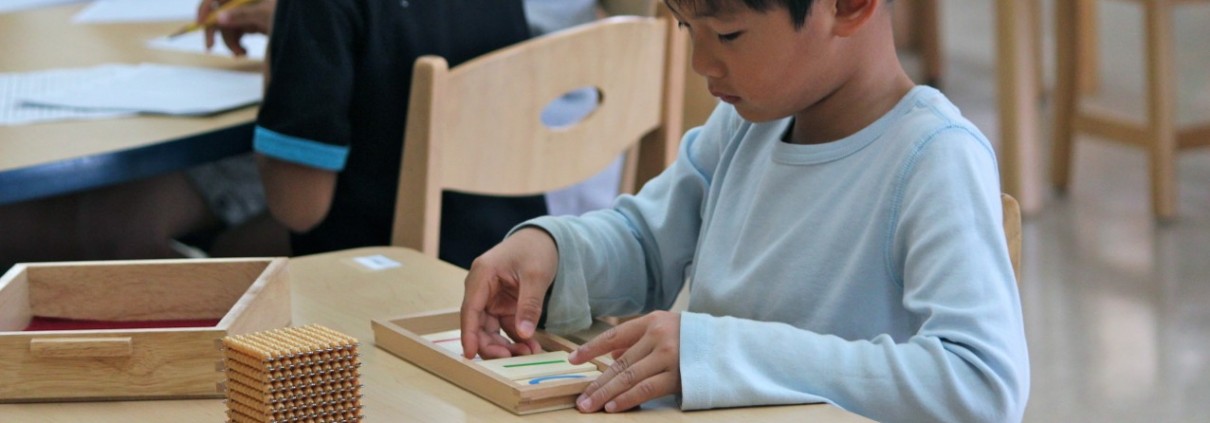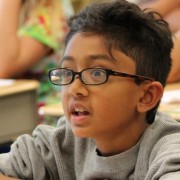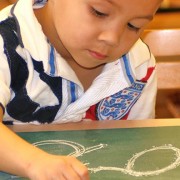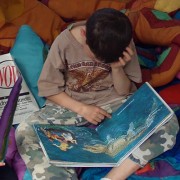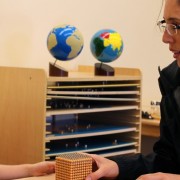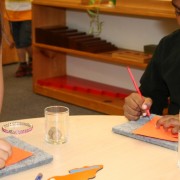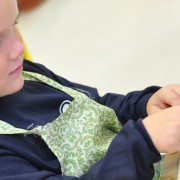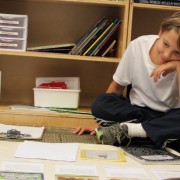Choose Prevention, Not Treatment
Two weeks ago, I read the following urgent requests for help on our local parenting resource, Berkley Parents Net’s “Advice Wanted” newsletter:
Kindergartener’s writing skills not great – repeat?
… The main issue we’ve had though has been his fine motor skills – particularly his writing. He’s doing ok but definitely in the lower part of the class, in terms of writing skills. … his writing is shaky and messy. When he rushes through it, it just isn’t super clear. He isn’t one to sit quietly—he likes to move through things quickly and I feel that is part of the problem. … I know that there is only more writing to come in first grade and I wonder what I can do to help him through this besides just practicing with him? How do I get him to slow down more and concentrate?
Nonverbal Learning Disorder
… My [3rd grade] son scored exceptionally high for verbal, fine for math and very low for non-verbal [on testing in school.] His handwriting has always been awful, very poor fine motor skills, clumsy and poor gross motor skills, voracious reader, meltdowns at homework. No problem getting social cues or getting sarcasm and humor. I have now read just about EVERYTHING about NLD, especially the oft-repeated line about NLD has the highest suicide rate for all learning disabilities!

9 year old twin with reading problems
… one [fraternal twin] is struggling with reading and falling behind. They are in 4th grade, but she is still having trouble recognizing simple words that she has seen and heard many times. Three years ago she went through the public school’s individual evaluation process. They determined her reading skills were developing slowly, but that she did not need special attention. Now we believe she DOES need some help, and we are wondering where to turn.
Three children, three sets of problems – but, in my view, one common denominator: an inadequate education system that does not properly, sequentially teach the skills children need to succeed in school and in life. While better schooling obviously cannot prevent all problems—some children of course do have real, inborn learning disabilities—I can’t help thinking that with better schooling, we would not see academic learning issues appear with such frequency or in such severity. I can’t say that for sure, but reading these tragic commentaries left me wishing that more children had the opportunity to experience a Montessori preschool and elementary education, so that more people could evaluate the difference.
Take the first case, poor handwriting skills, which appear to be in part due to an inability to concentrate on a piece of work for an extended time. The common assumption is that a child should naturally be able to concentrate. But in fact, being able to focus, i.e. to fully engage in a task for an extended period of time, is a learned skill. Not all adults are automatically able to focus on a task, and among those that can, there are radical differences in how well they can do it. Focusing is a skill that children must acquire at an early age, and the extent to which they acquire it depends on the quality of their educational experience. In a Montessori classroom, children get introduced to a wide variety of captivating materials that engage their curiosity, and with which they then practice for 30, 45 or even 60 minutes, during the long, uninterrupted work periods. Such materials are designed to help introduce a child to the process of sustaining attention over time—they are optimal for developing the capacity to focus. Whatever the precise impact such an environment makes, it is a known fact that Montessori students often persist in one task for hours at a time. Just anecdotally, my barely 4-year-old daughter just spent four hours at school a couple of days ago drawing a large map of the world with the outlines of all the continents, then coloring in the continents and oceans and labeling them by cutting out small pieces of paper with their names, and gluing them carefully on the map. Because of her Montessori experience, I am quite confident that she will not have issues concentrating on her handwriting, come Kindergarten…

The second child’s struggle has to do with deficient motor skills. Again, motor development can be assumed to be automatic, or can be treated as a learned skill. In a Montessori classroom, motor development is something children work on sequentially over time. 3-year-olds begin with simple pouring exercises, which help with hand control and coordination; they may strengthen their pincer grip by transferring small objects from one container to the next. 4-year-olds may string small beads, us droppers to transfer water, or work with the Metal Insets to slowly build the finger and hand control needed to properly hold and control a pencil. Children learn to carry trays with materials, carefully navigating the obstacle course of mats, chairs and children around a Montessori classroom. In the process, they learn to control their bodies, strengthen their gross motor skills, and move purposefully. While it is true that to greater or lesser extents fine and gross motor skills may just develop naturally, a Montessori preschool ensures that children develop these skills early and fully, before the lack of motor control becomes an issue in elementary school.

The last child’s struggle with reading is somewhat harder to evaluate. No doubt, there are clear, defined reading problems that are not a result of a child’s educational environment. Still, what makes me suspect that a wrong educational approach may have something to do with this case is the mom’s concern about her daughter not being able to read words she has seen and heard frequently. Too many public schools still use the “whole word” method for teaching reading, where children are expected to memorize whole words on sight, as though English were Chinese, and words were irreducible symbols that had to be recognized whole. Nothing could be farther from the truth: English, as we know, is an alphabetical language, where letters or letter combinations stand for certain sounds. Montessori schools embrace this fact, and teach letters and sounds starting in preschool. With careful, sequential instruction that proceeds from individual letters to multi-letter phonographs such as “oo” and “sh”, and which includes a wide variety of materials, such as the moveable alphabet to build words, and the command cards to act out simple written instructions, our students internalize the sound-letter correspondence. They also learn common sight words as an adjunct to their phonetic development, but the emphasis is on decoding, not memorizing strings of symbols. This is why, by the end of their 3rd year (the Kindergarten equivalent), Montessori students know not only to read a short list of words they have seen many times before, but acquire a systematic approach to reading any word they encounter. The whole written world is thus opened to their exploration.
My advice to parents, based on my experience working in education and my observations of my own children, is to proactively think about preventing such common problems as low attention span, poor motor skill development, or whole-word/guessing approaches to reading. Prevention works better than treatment. And, even more importantly, children who learn crucial skills naturally in preschool are much more likely to acquire and retain the love of learning that so often atrophies when children struggle unnecessarily in the early elementary grades.
Heike Larson

